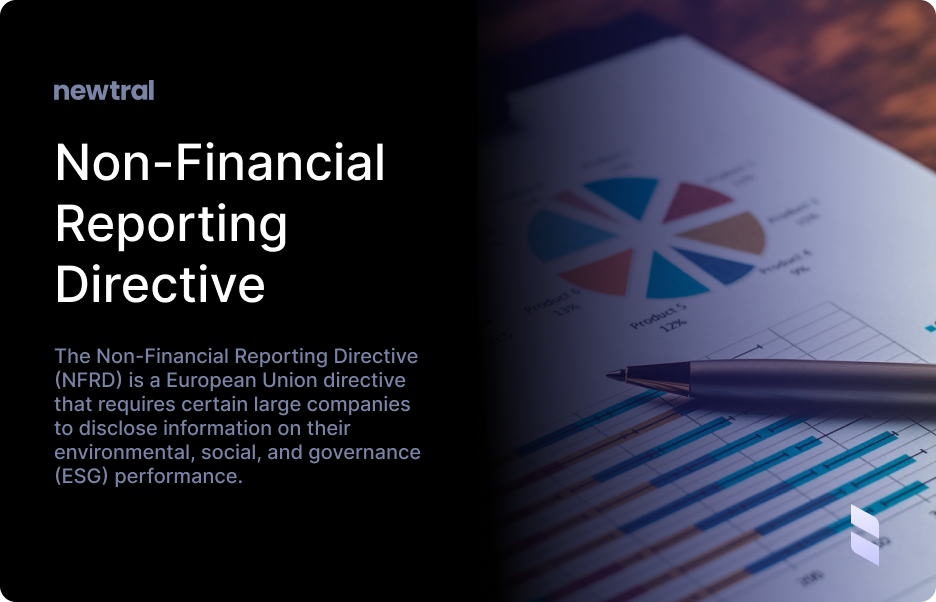Why NFRD
The directive aims to increase transparency and accountability for companies' non-financial impacts, promoting sustainable and responsible business practices. It was introduced to address the growing demand for companies to disclose their ESG performance and to promote a more sustainable and inclusive economy.
Timeline
The NFRD was adopted in 2014 and came into effect in 2018. It requires companies with more than 500 employees to include a non-financial statement in their annual reports, covering areas such as environmental matters, social and employee-related issues, respect for human rights, anti-corruption and bribery policies, and diversity on company boards.
How NFRD is important
The NFRD is important because it promotes transparency and accountability for companies' environmental, social, and governance (ESG) impacts. It encourages sustainable business practices by requiring companies to report on their non-financial performance. The directive also supports responsible investment by providing investors with ESG information to make informed decisions. Additionally, the NFRD contributes to the transition towards a more sustainable economy by encouraging companies to consider their environmental and social impacts.



.png)
%20png%20(1).png)